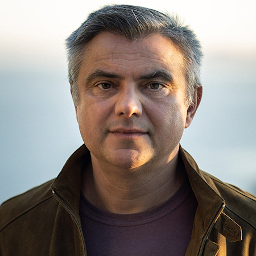Professor Marius Turda
BA, MA, PhD
Professor in 20th Century Central and Eastern European Biomedicine
School of Education, Humanities and Languages

Role
Professor Turda has supervised and continues to supervise BA, MA and PhD dissertations on various aspects of the history of eugenics, racism and the Holocaust.
Teaching and supervision
Courses
Modules taught
Undergraduate
- Death, Disease and Doctors: Medicine and Society [Year 1];
- Power and Dominion [Year 1];
- Brave New Worlds: Evolution and its Discontents [Year 2];
- On Race and Racism [Year 3]
Postgraduate
- Engineering Society: Eugenics and Biopolitics in Europe, 1860-1945 [MA]
Supervision
Currently, Professor Turda is supervising the following doctoral students:
- Anca Stef
- Terry-Lee Marttinen
- John Mason
- James Martyn
Research
Professor Turda's research interests are in the history of eugenics, race and racism as well as the Holocaust.
Research impact
More information about Professor Turda's research impact can be found at: Confront Eugenics website.
Centres and institutes
Groups
Projects
Projects as Principal Investigator, or Lead Academic if project is led by another Institution
- Uppsala University studentship - Terry-Lee Marttinen (01/09/2022 - 31/08/2028), funded by: Vetenskapsradet (Swedish Research Council), funding amount received by Brookes: £49,416
- 'We are not alone': Legacies of Eugenics, 1921-2021 (01/07/2021 - 31/12/2025), funded by: Ford Foundation, funding amount received by Brookes: £140,233
- Ana Aslan and Gerovital: Rejuvenation, Gerontology and Senescence in Romania - extra funding (01/11/2019 - 31/12/2025), funded by: Farmec SA, funding amount received by Brookes: £3,200
- Ana Aslan and Gerovital: Rejuvenation, Gerontology and Senescence in Romania (01/11/2019 - 07/01/2023), funded by: Farmec SA, funding amount received by Brookes: £13,158
Publications
Professional information
Memberships of professional bodies
- Fellow of the Royal Historical Society
- Member of the Faculty of History, University of Oxford
- Member of the International Commission for the History and Theory of Historiography
- Fellow of the Adelphi Genetics Forum (formerly Galton Institute)
- Senior Fellow of the Higher Education Academy
- Member of the Academia Europaea
- Member of the American Psychological Association
Conferences
Recent conferences organised and papers presented
- See the History of Race and Eugenics (HRE) for a full list of conferences.
Seminar series organised
- Co-founder and convenor of East & East-Central Europe Seminar, University of Oxford (2006-2012)
- Convenor of the History of Medicine Seminar, Oxford Brookes University (2010-2014)
- Convenor of the Centre for Medical Humanities Seminar, Oxford Brookes University (2015-present)
Further details
- Series editor of CEU Press Studies in the History of Medicine
- Confront Eugenics website
